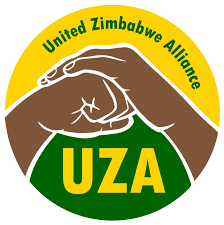Zimbabweans now need another political alternative because they are tired of the two parties that dominate the Zimbabwean political landscape, leader of the United Zimbabwe Alliance (UZA), Elisabeth Valerio, has said.
The ruling Zanu PF and the Movement for Democratic Change (MDC), which regrouped to form the Citizens Coalition for Change (CCC), have been touted as the country’s most dominant political parties, with analysts claiming the electoral field remains skewed in favour of the ruling party and deeply uneven for the opposition.
However, the UZA leader believes if people vote for a new political party other than these two, ‘serious change and true political independence,’ will occur.
“I can understand that has been the norm up to now where Zimbabwe has had these two political parties, either you choose this or that. Even if you don’t believe in either of them, you think you have to choose the lesser of the two evils,” Valerio said when asked about the chances for her political party.
“As the president of UZA, we’ve personally been through so many different communities and sat down with people. They don’t want either of those two parties mentioned, they don’t want CCC and don’t want Zanu PF.”
Valerio stated Zimbabweans have not had another viable political option that can lead Zimbabwe through this election, transition the government to a new president and have actual representatives in Parliament.
“That has been one of the biggest gaps, not having a viable third political party that people can really look to for change they are looking for,” she said and expressed confidence that UZA given support could bring change to Zimbabwe.
“I can tell you right now that there has never been a year like this year, where people in Zimbabwe fully understand and comprehend that the government is not serving them. What they don’t understand is the mechanism that they can use to vote out the government.”
She added that for the first time in Zimbabwe, most citizens realise they need to change the government and the so-called dominant opposition party.
“Most people do comprehend and understand that the second larger political parties, whether it is MDC or CCC, have been in government. It’s not like they are coming to the political space today. They have disappointed and so many people have been let down, promises have been broken,” said the UZA leader.
Valerio expressed confidence in her electoral chances, stating she represents a political party with an ideology and values that are the solution to Zimbabwe’s problems.
“I really believe this is what Zimbabwe has been looking for. I think that Zimbabweans at the end of the day when they fully understand what UZA fully represents, and I have sat down with them, don’t reverse their decision to go forward with us as a political party. This is why I said our biggest challenge right now is not being able to reach all the citizens that we need to reach,” Valerio said.
“I think people need to look at the values and policies we are bringing to Zimbabwe, the new policies to change this country. I wish for them to look at the leadership that we are bringing to constituency level candidates to the MP candidates and as a presidential candidate, the leadership and difference that we will bring in terms of what we are shaping for our country.”
The UZA leader acknowledged that it is difficult for voters to trust a political party when they do not know much of it or have the opportunity to see what it can do.
“People sometimes will have that hesitation and say ‘we want to vote for something which is a sure thing’ and during the by-elections that was one of the issues we saw,” she said, reflecting on UZA’s bad performance during the by-elections last year.
“We were also focused on the rural constituents and did not spend any time in the urban area where we actually ended up contesting. That was one of the things that we should have done differently but we entered the by-election with the intent of trying to make sure we understood what the process was like and what we needed to prepare.”
Valerio believes UZA has the “extra edge” it requires because it has invested time creating its leadership structures across the country and went through another year of training.
“We were so concerned about citizens’ engagement and hearing what the citizens want, so we are going to the election with a very different preparation now,” she said.
Weighing in on the issue, Dr Khanyile Mlotshwa, a critical studies scholar, said Zimbabweans needed a political party that would provide a “new home” for both ruling party supporters who vote for it out of fear and intimidation, as well as opposition supporters who “desperately vote for change for the sake of change.”
“Perhaps having another viable political party will also attract those Zimbabweans who do not vote but are eligible to vote,” he said, noting recent figures from the Zimbabwe Electoral Commission (ZEC) that showed only close to six million people had so far registered to vote, implying that millions more do not vote.

